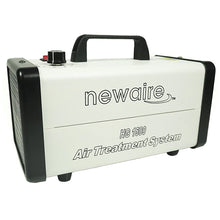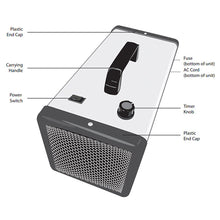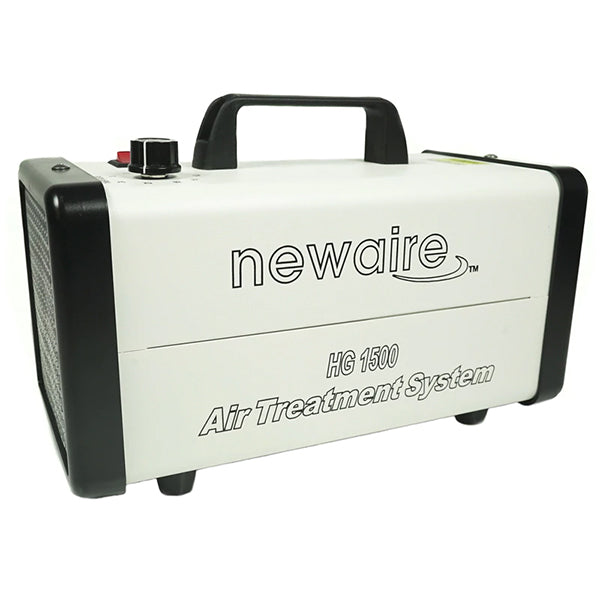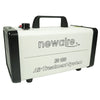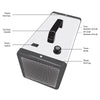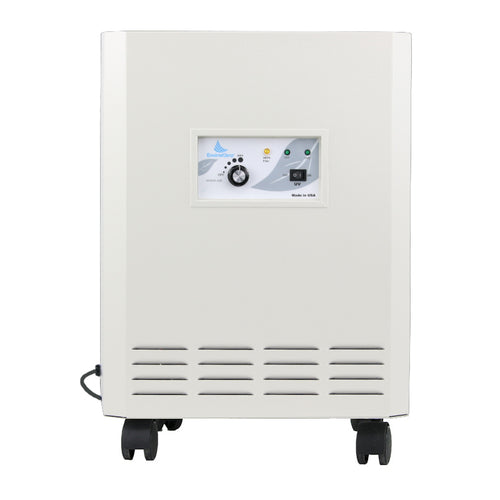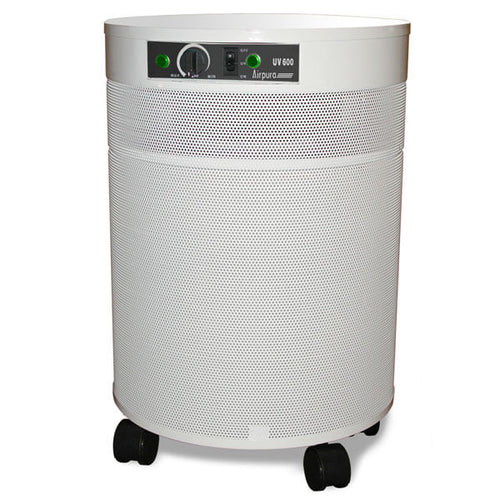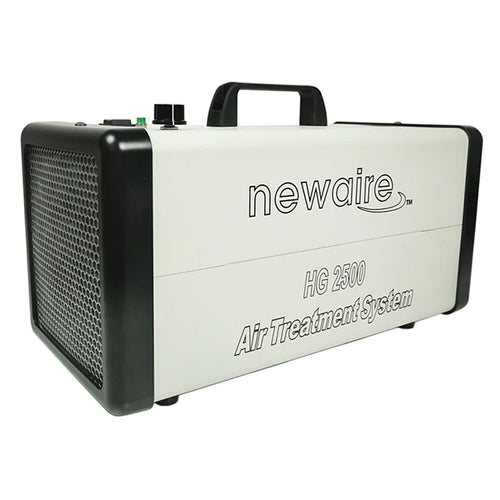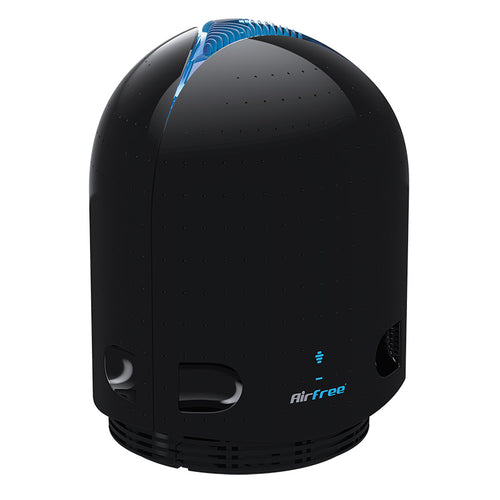HG-1500 | Hydroxyl Generator Air Purification System - 1500 Square Feet
1500-HG Hydroxyl Air Treatment System features state-of-the-art Photocatalytic Hydroxyl Generator Technology - Helps to Eliminate Odors, Bacteria, Mold, Mildew and Airborne Pathogens. Safe for Occupied Spaces up to 1,500 Square Feet. Read More...
SKU: 1500-HG
- Regular price
- $795.00
- Sale price
- $795.00 Sale
Similar items you might also be interested in...
- Product Overview
HG-1500 Hydroxyl Generator Air Purifier will help to Eliminate Odors and Destroy a Wide Range of Bacteria and Harmful Airborne Pathogens.
The HG-1500 Hydroxyl Generator is super compact and lightweight. It features state-of-the-art Photocatalytic Hydroxyl Generator Technology designed to treat the air inside the unit and help to kill bacteria and viruses while permanently eliminating odors. The 1500-HG is a true hydroxyl generator and is safe to use in occupied areas for deodorization purposes.
Hydroxyl technology is perfect for removing odors while killing viruses and bacteria in occupied spaces including...
Offices | Locker Rooms | Schools | Hospitals | Clinics | Nursing Homes | Fitness Centers | Day Care Centers | Funeral Homes | Police Evidence Rooms | Prisons |Detention Centers | Hotels & Motels | Buses & Shuttles | Warehouses | Apartments | Vehicles | Boats | RVs | And more...
What is Photocatalytic Hydroxyl Generator Technology?
Technically speaking, hydroxyls and hydroxyl radicals (not to be confused with ozone) are formed when UV-C radiation from the sun strips the hydrogen (H) atoms from water molecules (moisture - H20), forming negative hydroxyl ions (OH-) and a little hydrogen peroxide* (H2O2 gas) which helps clean the air.
In other words, hydroxyls react with airborne pollutants and destroy them. They are highly reactive and very short-lived with an average half-life of fewer than two seconds. They are airborne pollution and pathogen eaters.
The HG-1500 includes (2) carbon filter pads - one on each end of the hydroxyl generator - and (2) UVC 254 NM germicidal, ozone free, UV lamps.
- Treatment Process Includes Carbon Pre & Post Filters, and Twin Hydroxyl Chambers
- Reaction Surface - 154 Square Inches
- Chamber Life Expectancy - 25,000 Hours
- Includes a Solid State 24 Hour Timer Control
- Designed, Made & Assembled in the U.S.A.!
Technical Explanation of Hydroxyls...
Hydroxyls, which were first discovered by scientists in 1963, are often referred to as the “detergent” of the troposphere (the lowest part of the atmosphere) because they react with many pollutants and help to destroy them. Hydroxyls also have an important role in eliminating some greenhouse gases like methane and ozone.
Atmospheric hydroxyl radicals are so reactive that they are instantly neutralized when they make contact with any substance and would be impossible to ingest as a complete ion. This fact makes hydroxyl radicals, which are in the outside air at all times during the day, one of the safest processes for deodorizing in an occupied area. Hydroxyls are formed in nature by the reaction of UV light from the sun disassembling water vapor (H20) to get a hydrogen atom and oxygen (O2) which are combined together to form the hydroxyl radical (*OH).
Hydroxyl generators incorporate some form of UV light in their process and also require a proper catalyst to create the hydroxyls.
UV Light has Three Major Spectrums - A, B and C
- UVA is in the 315nm to 400nm wavelength and is what is commonly referred to as a “black light,” which makes white things glow and is considered safe for vision and skin contact. UVA lamps do not produce ozone.
- UVB is in the 280nm to 315nm wavelength. These are the lights used in tanning salons.
- UVC is the 100nm to 280nm wavelength. These lamps are “germicidal” and can damage your eyes and skin. UVC lamps in the 185nm spectrum produce large amounts of ozone.
The Catalyst Makes a Difference
- Some manufacturers use UVC lamps in the 185nm to 254nm wavelength with no catalyst whatsoever and claim to make hydroxyls. These units are nothing more than ultraviolet ozone generators.
- Other manufacturers use the same UVC 185nm to 254nm wavelength UV lamps but also incorporate reactive metals like titanium as a catalyst to create hydroxyls. These machines would probably make more hydroxyls then the first process described above, but they also produce ozone and should be considered for use in unoccupied areas only.
- The third technology which was developed with the National Aeronautics and Space Administration (NASA) utilizes UVC light in the 254nm wavelength to excite nano-sized particles of Titanium Dioxide to generate hydroxyl radicals. This process has been deemed safe by NASA (it has been used in the space station) and also certified by the Federal Drug Administration (FDA) as a Type 2 Medical Device that is approved for use in hospitals, including neonatal and baby wards.
HG-1500 Photocatalytic Hydroxyl Generator Specifications
| Room Capacity | Up to 1,500 Square Feet |
| Dimensions | 6.5" W x 8.5" D x 13" L |
| Weight | 6.5 lbs. |
| Fan Volume | 130 CFM |
| Control | On/Off Switch 24 Hour Timer |
| Electrical | 120V | 60Hz | 43 Watts | 1 amp fuse |
| Warranty | 2 Years |
Recently viewed products





